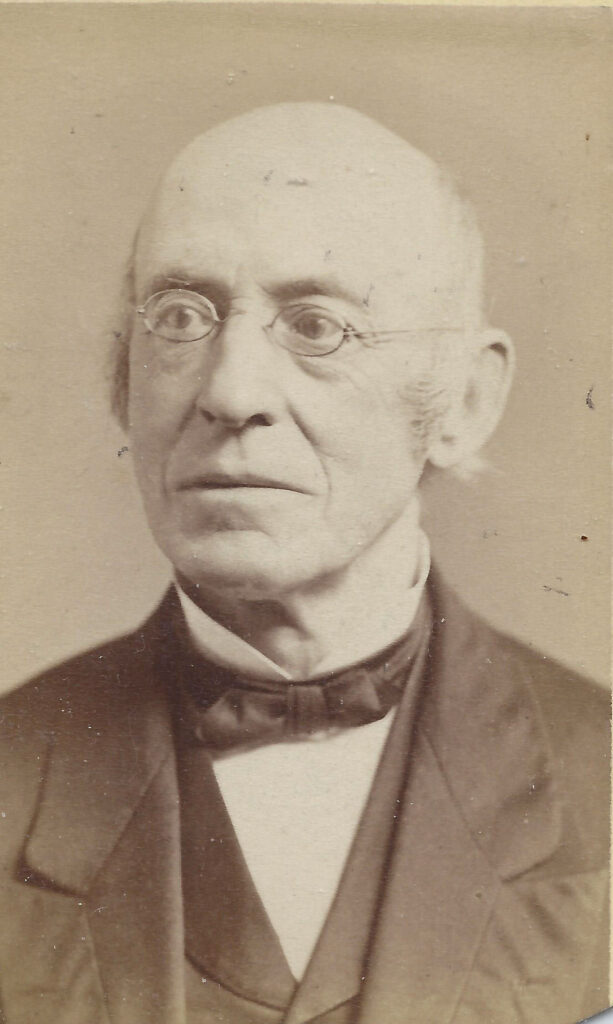Section #9 - Growing opposition to slavery triggers domestic violence and a schism in America’s churches
Chapter 103: The Prigg Decision Prompts Lloyd Garrison To Call For Disunion
March 1842
Garrison Tells The Slaves To Free Themselves By Running Away

Abolitionists are shocked by the high court’s ruling in the Prigg case and none more so than Lloyd Garrison, who characterizes the decision as follows:
The slaveholding power (may now) roam without molestation through the Northern states seeking whomever it may devour.
In typical fashion, Garrison uses the adverse news to notch up his inflammatory rhetoric in The Liberator.
His first barrage calls upon the slaves to continue to free themselves by running away from their masters.
His inner circle, including Lucretia Mott, support this plea, but others feel that inciting slaves to escape will only lead to greater hardships and repression. Garrison is unbowed. The timid may embrace caution, but he will not.
1842
He Then Calls For An End To The North-South Union
Thus comes his second salvo – an outright call for Disunion.
Ever the investigative journalist, Garrison has now read Madison’s “secretarial notes” on the closed door debates from the 1787 Convention, finally published in 1840, three years after the ex-president’s death. He is appalled by the litany of immoral compromises made on slavery to achieve the union.
This was a Union at the expense of our coloured population.
In turn, he throws his outrage directly into the faces of the Boston Brahmins who are ever ready to defend the wisdom and courage of the founding fathers.
The Constitution, he writes, is “the Devil’s pact” and he declares the time has come to break the bond.
The repeal of the Union between Northern liberty and Southern slavery is essential. Garrison is virtually alone in 1842 in his call for Disunion.
Mainstream Americans, both South and North, dismiss him as a radical trouble-maker – and those within the emerging “political wing” of the abolitionist movement see one more reason to distance themselves from him.
Yet his core supporters, often members of the New England Anti-Slavery Society he founded in 1831, remain loyal. On May 31, 1844, this regional group votes 250-24 in favor of Disunion.